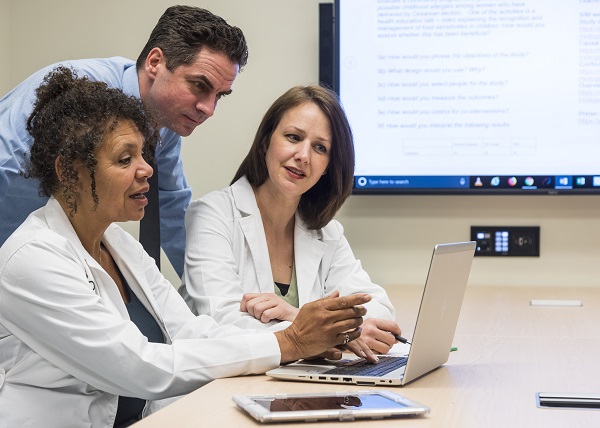*** Sponsored Content***
MCC 360 is a national multi-source feedback program delivered by the Medical Council of Canada. It provides each physician participant an individualized report, 1:1 coaching, and up to 15 Continuing Professional Development (CPD) credits.
The Practice Enhancement Program for Saskatchewan Physicians (PEPSask) is an educational program that encourages physicians to continually improve through practice-based quality assessment.
After its introduction in 1994, PEPSask assessed their physicians by conducting in-office audits—sending trained peer assessors to review charts and determine whether a physician was following existing standards and guidelines. This assessment technique, while effective, was expensive and labour intensive.
With upwards of 2,500 physicians in Saskatchewan, and a goal of assessing every eligible physician once every 5 years, there are a lot of assessments to complete.
In early 2020, PEPSask adopted MCC 360 as the first tool in their updated assessment process. Dr. George Carson, an obstetrician gynecologist and the co-chair of the PEPSask Committee explains, “we have to do more with the resources that we’ve got, and MCC 360 does this.”
The main objective of the program is in the name: Practice Enhancement Program. Dr. Carson believes that participating in the assessment process can be a fantastic opportunity for a physician. “It’s highly unlikely that any of us is perfect.” To reinforce this point, he volunteered to undergo the assessment process on his own practice. In keeping with the experiences of most physicians who complete MCC 360, he was reassured by the feedback he received and identified changes that could improve his practice.
Once a physician participant completes the feedback collection for MCC 360, they receive a report, and a call is arranged with a physician coach to review the report and assist with an action plan for positive change. The PEPSask Committee also reviews each physician’s MCC 360 report and considers the presence of pre-established indicators associated with an increased chance of problematic performance (these indicators include increased age, patient volumes, practice in isolation, and the absence of learners in the practice, among others). If any significant concerns are detected, an in-office visit is arranged to follow up. MCC 360 effectively acts as a screening tool for the more expensive and labour-intensive in-office visits. Used in this way, PEPSask regards MCC 360 and in-office assessments as complementary tools.
MCC 360 delves into performance in the CanMEDS physician roles of communicator, collaborator, and professional. Dr. Carson explains, “communicator and collaborator in particular are intrinsically important to patient care, and we weren’t actually measuring those very well with the in-office assessments.”
The intended purpose of MCC 360 is quality improvement*; however, Dr. Carson’s worry is always the possibility of a false-negative. Using only 3 CanMEDS roles for assessment, could MCC 360 approve a practice and overlook a problem that results in a patient getting hurt? The medical expert role—a role that was well measured with the previous in-office visits—is not measured by MCC 360, but Dr. Carson hopes research might offer some insight into possible correlation. To mitigate this risk, PEPSask randomly selects some physicians who have had good outcomes on their MCC 360 for an in-office assessment; neither the physician nor the assessor knows the reason the in-office assessment is being done.
By comparing a sufficient number of in-office assessment results with both positive MCC 360 results and poor MCC 360 results, PEPSask hopes to determine whether MCC 360 is adequately screening for parallel problems that may exist in the medical expert role. This would allow PEPSask to spend their limited resources conducting in-office assessments where they are needed most. PEPSask is the first organization to collect such data and plans to share the results with the Medical Council of Canada (MCC).
PEPSask expected to complete 150 physician assessments this year, but with MCC 360, they are on track to exceed that number. The use of MCC 360 coupled with in-office assessments brings PEPSask closer to their goal of routinely reviewing all eligible physicians and delivering high-quality care to all patients in Saskatchewan.
For more information, visit MCC 360.
* MCC 360 is intended to be used for formative purposes and is not meant to provide a pass or fail decision about a physician, or to rank-order physicians. As a quality-assurance committee, opinions (such as observations about a practice) are protected. This keeps the findings of PEPSask at arms-length from the College of Physicians and Surgeons of Saskatchewan. Bylaws require PEPSask to report to the college anyone found to be an immediate threat to the well-being of patients in Saskatchewan.


